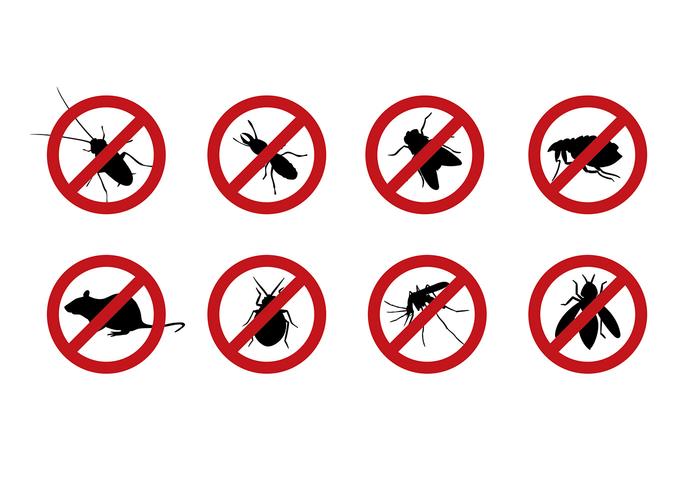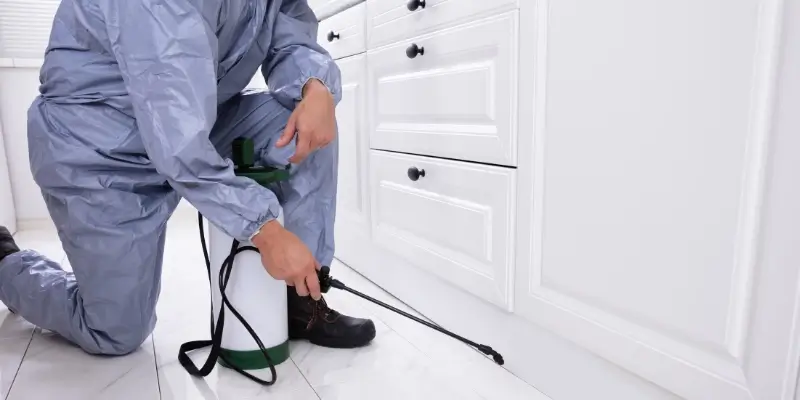Top Coquitlam Pest Control Solutions for a Rodent-Free Home
Top Coquitlam Pest Control Solutions for a Rodent-Free Home
Blog Article
Safe and Reliable Bug Control for Lasting Protection
Reliable bug administration needs a multifaceted approach that balances environmental honesty with the requirement for efficient parasite suppression. The subtleties of these techniques may not be right away clear, motivating a closer examination of the techniques that can lead to lasting insect control outcomes.
Recognizing Pest Control Techniques
Insect control encompasses a range of methods focused on managing and eliminating unwanted pests and rodents that can intimidate both health and wellness and residential property. Understanding these approaches is critical for efficient parasite administration.
The key groups of bug control methods consist of mechanical, organic, and chemical methods. Mechanical approaches involve physical obstacles and traps to stop pest entrance and capture undesirable species. Using displays on windows or employing sticky catches can dramatically decrease bug populaces without presenting unsafe substances - exterminator coquitlam.

Chemical bug control is often the most recognized method, utilizing pesticides to eliminate pests. These chemicals can be effective yet must be made use of with care to avoid damaging results on non-target varieties and the environment.
Benefits of Eco-Friendly Solutions
Exactly how can green services change insect control techniques? The adoption of environment-friendly parasite control techniques supplies various advantages, substantially boosting the efficiency and security of insect monitoring.

Another advantage is the favorable effect on neighborhood biodiversity. Environmentally friendly options are made to target specific pests while preserving helpful pests and wild animals, advertising a balanced community. This method lines up with the growing consumer demand for lasting techniques, boosting the online reputation of pest control suppliers.
Integrated Bug Monitoring Methods
The execution of environmentally friendly services naturally leads to the fostering of Integrated Parasite Monitoring (IPM) approaches, which better boost bug control effectiveness. IPM is an alternative method that combines multiple techniques to handle bug populations while minimizing ecological effect. This technique emphasizes the use of organic, cultural, mechanical, and chemical controls, guaranteeing a lasting and well balanced technique of pest monitoring.
One basic element of IPM is the extensive evaluation of insect activity and ecological conditions. By monitoring parasite populations and recognizing their life cycles, specialists can carry out targeted interventions that interfere with the parasite's habitat or lifecycle, reducing dependence on chemical pesticides. In addition, cultural techniques such as crop turning and habitat control can substantially decrease parasite establishment and recreation.
Another critical element is the use of organic control representatives, such as beneficial pests or bacteria, which can normally suppress parasite populations. When chemical applications are required, IPM focuses on the usage of low-risk pesticides and uses them uniquely, minimizing exposure to non-target microorganisms and human beings.
Integrating IPM methods not just enhances pest control efficiency yet also promotes a much safer ecosystem, lining up with the growing need for lasting practices in insect administration.
Safe Practices for Home Owners
Recognizing the significance of safe practices in bug control can encourage home owners to efficiently handle parasite issues while protecting their health and wellness and the setting. Implementing preventative measures and non-toxic methods is important in lessening direct exposure to harmful chemicals.
Home owners must first evaluate their environment for problems that draw in insects, such as standing food, water, and mess waste. Frequently cleansing and securing entry factors can discourage pests from attacking the home. Using natural deterrents, such as important oils or diatomaceous planet, can give efficient alternatives to chemical pesticides.
When chemical therapies are required, homeowners must select products that are especially identified as secure for property use. It is important to adhere to application guidelines diligently to prevent overexposure. Utilizing targeted treatments in locations where parasites are determined, instead than covering spraying, can substantially reduce chemical usage.
Lastly, preserving open interaction with pest control experts is essential. House owners ought to inquire concerning the safety of products used and demand environmentally friendly options whenever feasible. By adopting these secure practices, property owners can create a healthier living environment while effectively taking care of insect concerns.

Tips for Long-Term Defense
Establishing an insect management method that stresses long-term protection can substantially enhance the effectiveness of the safe methods formerly reviewed. To attain this, homeowners should implement regular evaluations of their residential property, focusing on hidden areas such termites in house treatment as attic rooms, cellars, and crawl rooms. Early discovery of parasite task is crucial in protecting against problems from holding.
These techniques minimize attractants that draw insects into the home. Securing entrance factors, such as fractures around doors and home windows, can efficiently obstruct prospective pest accessibility.
Landscaping needs to likewise be considered; maintaining plants trimmed and preserving a distance between plant life and the home reduces concealing spots for bugs. Utilizing all-natural deterrents, such as important oils or diatomaceous planet, can further discourage infestations without resorting to rough chemicals.
Finally, teaming up with a specialist parasite control service for regular assessments can offer an additional layer of security. These professionals can supply tailored suggestions and progressed therapies, guaranteeing that your home stays protected against bugs in the long term.
Conclusion
To conclude, trusted and safe insect control needs a complex approach that highlights green methods and integrated insect administration. By applying all-natural deterrents, conducting routine assessments, and keeping proper sanitation, homeowner can substantially reduce pest populations while safeguarding helpful pests and the environment. Collaboration with expert bug control services enhances the effectiveness of these techniques, guaranteeing tailored solutions that provide lasting defense and tranquility of mind versus future problems.
Efficient bug administration needs a diverse approach that stabilizes eco-friendly honesty with the requirement for efficient pest suppression. The adoption of environment-friendly bug control techniques provides numerous advantages, substantially improving the effectiveness and safety and security of bug administration.The implementation of eco-friendly options naturally leads to the adoption of Integrated Bug Administration (IPM) techniques, which further boost insect control efficacy. exterminator coquitlam. By keeping track of pest populaces and identifying their life cycles, structural pest control experts can carry out targeted biological pest control interventions that interrupt the bug's habitat or lifecycle, lowering dependence on chemical pesticides.In conclusion, risk-free and dependable parasite control calls for a complex method that stresses environmentally friendly approaches and integrated parasite administration
Report this page